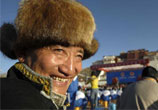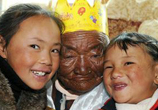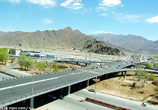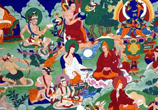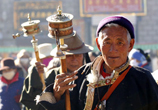News
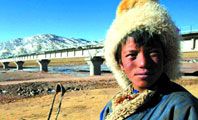
Report: Central government plays crucial role in promoting Tibet´s economy
Tibetologists: Dalai Lama´s anniversary speech distorts facts
The 14th Dalai Lama has distorted facts in his public remarks this month, say Chinese tibetologists.
More news
- Lhasa speeds up construction of eco-garden city
- Leading newspaper Op-ed exposes truths of Dalai Lama
- Westerners "must know Tibet reality"
- County town in Sichuan witnesses great changes
- Skateboards, cars and travel part of modern world of Tibetan monks
- Report: Tibetan population grows fast, language education stressed
- Religion, modernity co-exist in harmony
- Dream and life of the 11th Panchen Lama
- Nepali journalist: China´s Tibet witnesses tremendous development in 50 years
- High cost, urban-rural imbalance obstacles to Tibet´s future development: report
- Tibet´s environment well preserved through sustainable development: report
- China issues Tibetan development report
- Italian scholars express concerns about distorted reports on Tibet
- Report: Central government plays crucial role in promoting Tibet´s economy
- 300-year old Labrang Monastery maintenance project approved
- China publishes report on Tibet´s economic, social development
- Full Text: Report on the Economic and Social Development of Tibet
- China publishes report on Tibet´s economic, social development
- Panchen Lama, businessmen weigh Buddhism´s impact on business
- Tibet photo exhibition held in New York
- Official: Tibet to reopen to foreign tourists
- On Serfs Emancipation Day, celebration, recollection, and wishes from across China
- Tibet sees great progress in wildlife protection
- Italian scholars speak out against Dalai Lama
- Indian newspaper applauds China´s democratic reform achievements in Tibet
- Chinese Tibetologists urge Swiss media to report on real Tibet
- Can Dalai Lama´s lie deceive the world for long?
- Beijing hosts gala to celebrate emancipation of serfs in Tibet
- On Serfs Emancipation Day, celebration, recollection, and wishes from across China
- Tibetans memories: From serfs to masters of their own destiny
- Destinies of two generations in Tibet
- Miserable lives of serfs in old Tibet
- Tibetans mark 1st Serf Emancipation Day
- President Hu Jintao praises Tibet development
- Full video: Serfs Emancipation Day celebration
- Grand Celebration of Serfs Emancipation Day
- Panchen Lama says China enjoys religious freedom
- Celebration for Serfs Emancipation Day starts in Tibet
- Tibet development through numbers
- Chinese President praises Tibet development, hails democratic reform
- Chinese leader calls for stability in Tibet ahead of Serfs Emancipation Day
Celebration/Commemoration
- Tibet photo exhibition held in New York
- On Serfs Emancipation Day, celebration, recollection, and wishes from across China
- Beijing hosts gala to celebrate emancipation of serfs in Tibet
- On Serfs Emancipation Day, celebration, recollection, and wishes from across China
- Tibetans mark 1st Serf Emancipation Day
